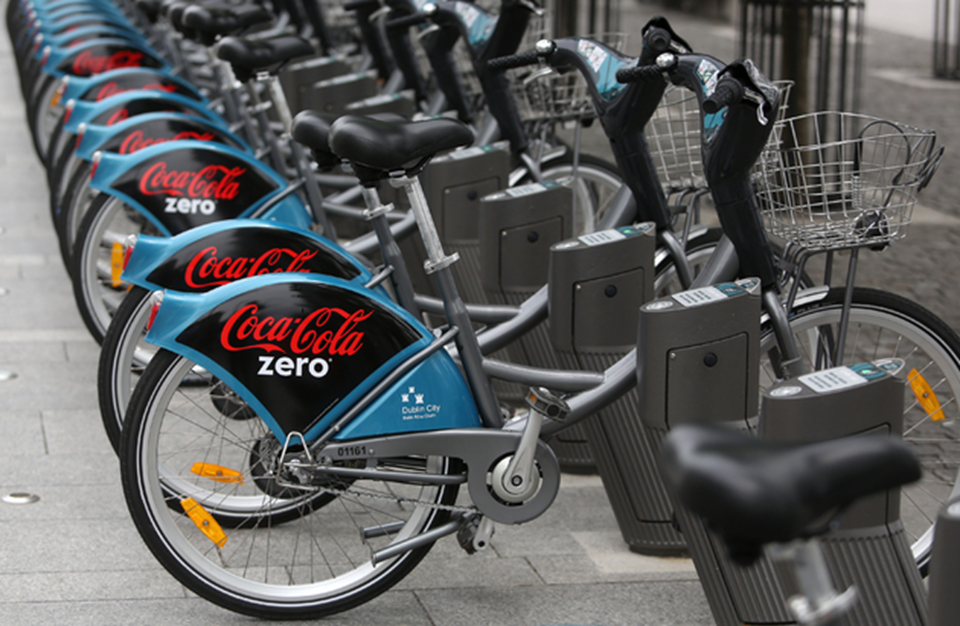 Research carried out by Ipsos MRBI on behalf of PML Group indicates that Dublin residents would prefer to see the funding of the Dublin Bike scheme (dublinbikes) come from advertising revenue in the city rather than paying additional subscriptions themselves.
Research carried out by Ipsos MRBI on behalf of PML Group indicates that Dublin residents would prefer to see the funding of the Dublin Bike scheme (dublinbikes) come from advertising revenue in the city rather than paying additional subscriptions themselves.
The research, carried out among 300 Dubliners aged 16-54 in September, questioned whether respondents would prefer to fund the bike scheme via a small number of additional billboard type advertising panels in their own area or via additional subscription costs for the rental of the bikes going forward.
Of those who expressed an opinion one way or another (195 respondents), a large majority were in favour of funding the scheme via advertising. 77% of this group were in favour of the advertising based model.
There were some notable differences when it came to age groups. Most in favour of the advertising approach were the 16-24 age group (83%) and the 25-34 group (82%). The age group covering 45-54 year olds were most in favour of paying more for the bike scheme themselves, with 39% of those who expressed an opinion expressing a preference for such a method.
Respondents were also asked in which county council they lived and in all cases the majority of residents favoured having a small number of additional billboards in their area to fund the bike scheme. Most in favour were residents of Dublin city council, followed by Dun Laoghaire-Rathdown, South Dublin and Fingal.
According to Colum Harmon, marketing director at PML Group, “how schemes such as dublinbikes are funded into the future is always going to be a topic of debate. We were keen to see what the public’s opinion was on the subject, given the presence of OOH advertising as a feature of the conversation. It appears from this research that the Dublin public are quite prepared to accept the role of advertising as a method of helping to provide the city with such amenities. Given the question we posed was in relation to the specific area in which the respondent lived, it seems ‘nimbyism’ is not a major factor in their thoughts either.”




















